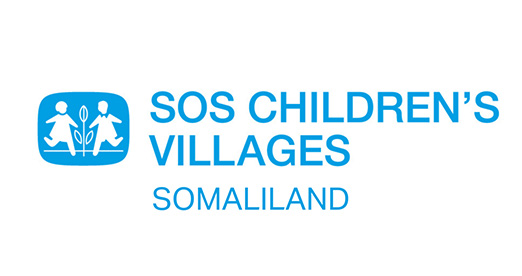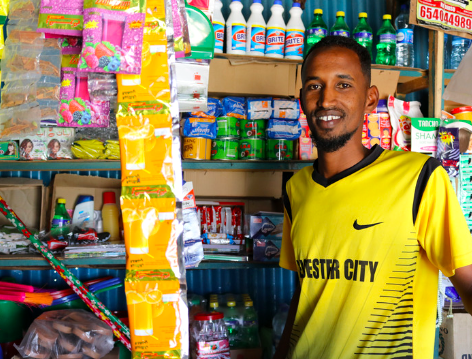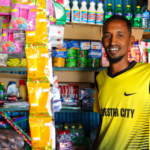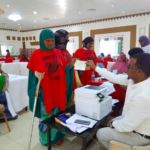Muna*, 10, came close to losing her dream because her mother could not take her to school.
When children her age went to the village school smartly dressed in their uniforms, Muna stayed at home helping her mother with house chores. Sometimes she played alone.
“I felt desperate and asked my mother when I would join a school,” says Muna. “My mother told me that to go to school I needed a school uniform and she could not afford to buy.” Muna says learning was often on her mind and she wondered if she would ever sit in a classroom.
Muna lives with her mother and five siblings 7, 6, 3, 2 years, and 6 months old in Berbera town, Somaliland. Her father and family’s breadwinner left when she was 4 years old – plunging the family into great financial distress.
To feed her children, Muna’s mother, Hodan, started selling ice cream. Her meagre income partially covered food needs and nothing else. Rent accrued and she was afraid her children would end up on the street.
“My young children survived on one little meal per day,” says Hodan. “They cried of hunger but I did not have money to buy food. I told them their father would bring some food, but it was not true. I was desperate.”
Hodan, 30, remarried hoping her new husband would help her provide for the children. Unfortunately, the marriage did not last – it broke up after one year leaving Hodan with another mouth to feed.
When Muna and her siblings reached school-going age, Hodan Mohamed kept them at home for lack of money to meet the cost of school essentials. Primary school education is free in Somaliland, but parents need to buy uniforms and school supplies. Some schools charge 2 US dollars to cater for expenses such as stationery, chalks, and other educational materials.
In Somaliland, one in every two children does not attend school due to poverty, drought, food insecurity, or inequality.
Best life
Hodan Mohamed wanted the best for her children, but she needed support to achieve this important goal in their lives. In 2021, the SOS Children’s Villages in Somaliland family strengthening programme enlisted the family for support.
Caregivers in the programme attend classes in child care, parenting and child development, entrepreneurship, and also learn how to manage their finances. Supporting households in need diminish the likelihood of child abuse, neglect and family separation.
In order to attend school, Muna and her three siblings received school uniforms and supplies, while through a local community-based organisation (CBO), Hodan acquired 300 USD to boost her ice–cream business. With a good income, she could better meet the daily needs of her children.
“I felt happy when I got the uniforms because it meant I could join school – a white shirt, black Hijab, and a brown skirt,” says Agal. “Education is very important because it will shape my future; it will also help me get a job and that will help my family.”
“I was very excited when I saw my children go to the school to study, like the other children in our village,” says Hodan. “Lack of education could have pushed them to the streets to engage in risky behaviour.”
Muna is now in grade one. She goes to school in the morning and attends Madarasa in the afternoon. She is thriving in the core subjects, English, maths, and Arabic. She was among the top ten students in her recent midterm exam.
I want to be a teacher when I grow up,” says Muna. “There are no female teachers in my school and she would like to change that.”
Business growth
With the Micro-Credit loan Hodan received from the SOS children’s villages in Somaliland through CBO, she bought two new refrigerators to stock more ice cream. “This business has great potential since Berbera is a hot place, and people like to cool themselves with cold drinks and ice cream,” says Houdon. “There are two large primary schools in my village and the students are my customers. My business is mobile but in the future, I want to sell from a shop.”
Hodan plans to extend the business to open new branches in and outside Berbera. Hodan had already communicated with one of the Micro-finance institutions in Berbera so that she can reach her dream of expending businesses in and outside of Berbera.
“Business is good and I am now able to buy clothes, pay Quranic fees and buy healthy food for my children,” says Hodon. ”Our diet has changed and we now eat meat and fish. We are happier as a family and I am no longer afraid of the future.”
*Name changed to protect the privacy of the child.




